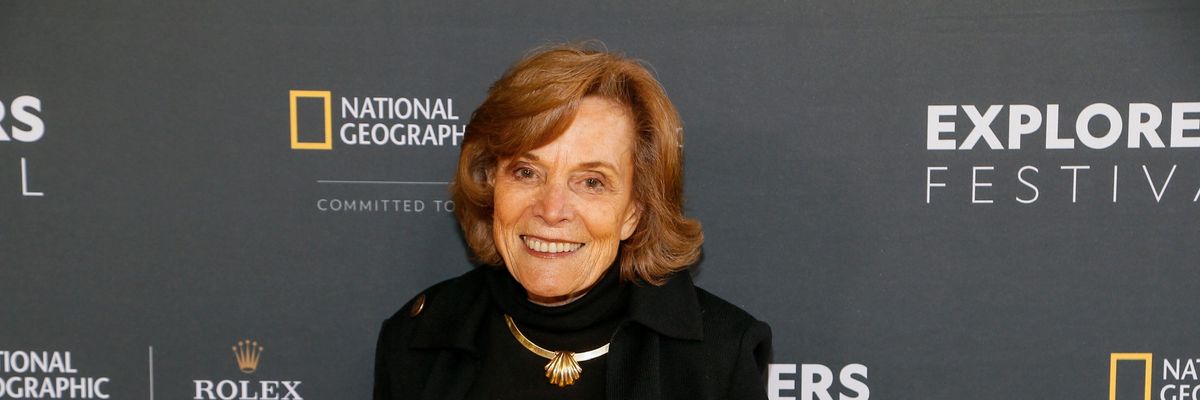Renowned oceanographer Sylvia Earle is calling for world leaders at the United Nations climate summit to support a ban on industrial fishing in international waters to "safeguard the blue heart of the planet."
"We must protect nature as if our lives depend on it."
"All of that wildlife taken out of the ocean not only affects biodiversity and fosters extinctions at an accelerated rate. It breaks the carbon cycle--the nutrient chain that maintains the fabric of life on Earth," said Earle, who was at COP26 this week, The Guardian reported Wednesday.
The deep-sea researcher said tackling the issue of overfishing is as important to the climate crisis as curbing fossil fuel emissions. A industrial fishing ban, said Earle, would help protect oceans "in a stroke."
Due to poor management and regulation, overfishing occurs when fish species are removed from the ocean at such high rates they become too depleted to recover, destroying fish populations around the world. Commercial fishing also employs tactics that perpetuate unnecessary waste, when massive amounts of unwanted fish and animals are caught in nets and then discarded.
According to a 2018 report by the U.N. Food and Agriculture Organization, a third of commercial fish populations are being harvested at biologically unsustainable levels and the world's fisheries are in deep trouble.
While three billion people worldwide rely on wild-caught or farmed seafood as a food source, Earle noted that just five nations were "benefiting disproportionately on an industrial scale from the wild animals that live [in international waters]," for means of profit. Earle argued that the coastal communities who survived on fishing could do so within national waters.
Eighty-six-year-old Earle, president of Mission Blue, an organization that aims to establish marine protected areas (MPAs), welcomed COP26's "30x30" initiative to secure at least 30% of world's oceans by 2030, but says the proposal does not go far enough.
"We must protect nature as if our lives depend on it," she said. "Achieving 30% of full protection for land and sea... doesn't mean we can trash the rest."

